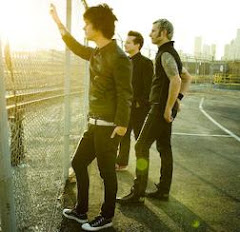there is definitely a bit of mystery surrounding the subtitle of "freedom for the thought that we hate: a biography of the first amendment," by anthony lewis. my copy of the book reads, "a biography of the first amendment," while other copies read "tales of the first amendment!" why the confusion? apparently - and this is the only line of reasoning which makes sense - the publisher (and i seriously hope, not the author) was alerted to, and made aware of, the greater scope of the first amendment! lewis only covers free speech, press and related expression liberties. there is no discussion of the second major branch of the first amendment, freedom of religion!
it the second version, "tales of the first amendment," is a more precise and appropriate subtitle. lewis has written, a mostly chronological history lesson of the development of the free speech branch of the first amendment. his book is a wonderful primer for non-lawyers (and a refresher for some lawyers), of what free speech, press, and expression jurisprudence in the united states today.
the history of free speech case law begins in 1919, thanks directly to the repressive espionage act urged by president woodrow wilson and passed by the congress at the entry of the united states into world war one! while lewis does discuss the colonial era sedition law and its consequences, once it expired at the dawn of the 19th century, there was no meaningful free speech jurisprudence until the 1917 espionage act and the wholesale prosecutions which followed in the wake of its enactment.
sadly, in a trio of espionage act cases that reached the supreme court in 1919 and examined the scope of first amendment, the court affirmed all of the convictions and basically ignored the first amendment claims. then, in a fourth case, which reached the court at the end of 1919, the convictions were once again affirmed, but in this instance justice holmes issued a dissent and articulated what has become know as the "clear and present danger" test. he and justice brandis argued that the 20 year sentences imposed on the defendants were excessive (and unlawful) because the leaflets they published urging a general workers strike to protest president wilson's intervention in the russian revolution, were "poor and puny anonymities" - and were no threat, real or imagined, to the government!
from that humble dissent, a series of cases over the next 10-15 years incrementally enlarged upon the area of protected speech and expression. with a pause during world war two, and what may be seen as a set-back for first amendment free expression civil liberties in the post-world war two years because of the fears of the cold war - an era of loyalty oaths and blacklist, comic book burning, and blatant literary censorship, to mention just a few repressions. it wasn't until the dawn of the 1960's that free expression jurisprudence began favoring free expression!
lewis takes the time to examine not just the development of "traditional" free speech cases, but looks into obscenity, libel, hate speech, symbolic speech (flag burning), and the scope of a free press (including the privilege of reporters to withhold the names of sources). he even goes off on enough non-first amendment tangents (wiretapping, detainees, anti-bush diatribes), to keep one guessing. he covers a lot of material in 189 pages - and his book is well worth the investment by those interested in our rights of free speech and expression.
Sunday, July 6, 2008
"freedom for the thought we hate: a biography of the first amendment" book review
Labels:
book review
Subscribe to:
Post Comments (Atom)



















2 comments:
As an immigrant from erstwhile apartheid South Africa, I value freedom of speech and freedom of expression perhaps more so than most Americans, who tend to take it for granted. I did not realize that free expression had such a tough time of it in the USA until the early 1960's! I need to read this book; I wonder if this is the same Anthony Lewis who wrote for the New York Times some years ago.
bert,
lewis is the same former ny time columnist your thinking of.
he rose to fame with "gideon's trumpet" his book on the supreme court's decision establishing a defendant's "right to counsel."
the book was made into a movie (same name), starring henry fonda.
Post a Comment